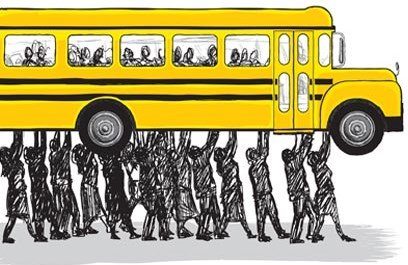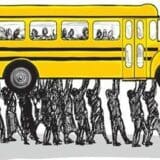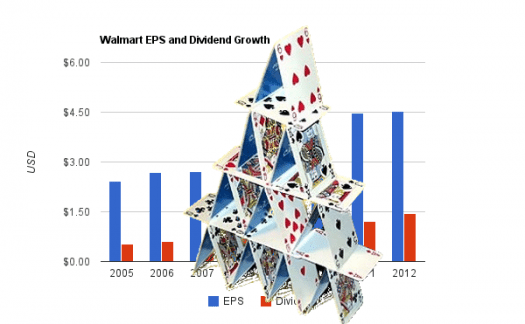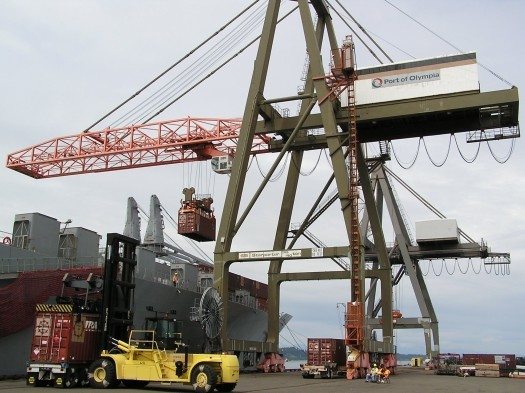

 Congressman John Lewis is the only survivor among the ten speakers at the March on Washington, a turning point in the civil rights movement that occurred 50 years ago, on August 28, 1963. The march is most famous as the setting of Martin Luther King’s famous “I Have a Dream” oration, but Lewis’ speech that day, representing the movement’s radical youth wing, provided a different kind of call to arms. It is a message that Lewis has continued to voice as a movement activist and an elected official.
Congressman John Lewis is the only survivor among the ten speakers at the March on Washington, a turning point in the civil rights movement that occurred 50 years ago, on August 28, 1963. The march is most famous as the setting of Martin Luther King’s famous “I Have a Dream” oration, but Lewis’ speech that day, representing the movement’s radical youth wing, provided a different kind of call to arms. It is a message that Lewis has continued to voice as a movement activist and an elected official.
Only a handful of the 250,000 people at event – officially called the March on Washington for Jobs and Freedom to reflect the link between economic justice and civil rights – knew anything about the drama taking place behind the Lincoln Memorial. Under the leadership of A. Philip Randolph, the longtime civil rights and trade union leader, the march had brought together the major civil rights organizations as well as labor unions and religious denominations and women’s groups.


No one ever said housemaid or domestic. Pride matters more
And here’s the truth of it: she was Tantie, a grand-mothering
substitute chained to Miss B., a former Hollywood come-hither
and Tantie’s final mystery. I couldn’t name a single movie
Miss B had starred in but Mother told us she was a 1st-class bitch.
Thirty years later, watching late night television, I recalled:
I met that bitch once. Ill-preserved on celluloid, she fluttered
there amidst her ersatz brood but not in the same way I’d seen
her flutter decrees upon my Tantie. And my Tantie, once a muck-
a-muck in her own right (having flown an airplane solo in days when
most women and Negroes were grounded) half-fluttered in return—
to make sure her family had dimes and nickels. Tantie didn’t tell us
she was Miss B’s maid and I never knew a thing about it until I saw
this black-and-white movie with Miss B—half a star among stars—
given third place billing—nearly unrecognizable as the cold shrew
I remembered flaunting dipped pearls,


I wanted to cry after watching Go Public: A Day in the Life of an American School District. After the hour-plus video collage of complex and inspiring day-to-day interactions that make up our nation’s public schools, the film culminates in pleas from teachers, parents and maintenance staff to the Pasadena Board of Education to forestall millions of dollars in new budget cuts to the district’s schools.
I’ve been there myself, 25 years ago when my kids were in grammar school, pleading with Santa Monica School Board members to save school librarians and nurses, most of whose positions were eventually eliminated.
It’s so hard to understand how a city like Pasadena, where median home prices are in the $600,000 range, has had to face $6.5 million in education cuts in the past few years. These cuts have resulted in school counselors having to handle 480 students apiece,


This Walmart low-prices, low-wages thing isn’t working out so well — even for Walmart.
The company released its quarterly numbers last week, and they weren’t pretty. Same-store sales declined by 0.3 percent, and the company lowered its earnings-per-share forecast. Bad news wasn’t limited to Walmart. At the low end of the retail consumer market, Kohl’s reported similarly bad news; Macy’s, a little higher up the food chain, lowered its earnings forecast as well.
While Americans with money are boosting both the housing and auto markets, the growing number of Americans without are curtailing their shopping. As Douglas McMillon, chief executive of Walmart International, noted last week, “When we do see good things in the economy, sometimes they don’t immediately flow through to a paycheck. Remember how the average American lives.”
And who signs more paychecks than any private-sector employer on the planet?


 You wouldn’t know it from the Los Angeles Times’ recent coverage, but the labor contract with International Brotherhood of Electrical Workers (IBEW) Local 18 currently under consideration by city officials is a good deal for Department of Water and Power (DWP) customers and the city as a whole, and city officials would be wise to approve it, even if there are minor changes made to the deal. A regular reader might also miss the fact that Los Angeles has some of the lowest utility rates and most reliable service in the region.
You wouldn’t know it from the Los Angeles Times’ recent coverage, but the labor contract with International Brotherhood of Electrical Workers (IBEW) Local 18 currently under consideration by city officials is a good deal for Department of Water and Power (DWP) customers and the city as a whole, and city officials would be wise to approve it, even if there are minor changes made to the deal. A regular reader might also miss the fact that Los Angeles has some of the lowest utility rates and most reliable service in the region.
A cursory review of the L.A. Times website reveals that the newspaper has published some 18 stories on issues related to labor costs at DWP over the last year. (This accounting does not include the Times’ coverage of the mayoral campaign in which IBEW Local 18’s support of Wendy Greuel became an issue.) Meanwhile,
» Read more about: The L.A.Times Misses the Bigger Picture »


The Citizens Trade Campaign is coordinating efforts with labor, environmental organizations, health organizations and others to help persuade Congressional representatives of the need to opposed fast track authority for the Trans Pacific Partnership (TPP) agreement, which would cover 40 percent of the global economy between 12 nations, and is currently being negotiated in virtual secrecy.
Since negotiations began in 2008, none of the negotiating documents have been officially released for public review. However, approximately 600 corporate lobbyists have been named as official advisors which entitle them to access to both the negotiating texts and the negotiators.
And now the Administration wants to invoke a Nixon-era procedural tactic known as “Fast Track” that allows for only an up or down vote on the agreement. “Fast Track” allows the Trans Pacific Partnership and other trade agreements to be signed before the public sees any proposed texts and then rushed through Congress,
» Read more about: Will Congress Fast-Track a “NAFTA on Steroids?” »


Rooftop solar has many benefits, like reducing the need for dirty natural gas plants that pollute our air. It is also a great tool for growing California’s clean energy economy. In fact, not only does it save individuals money on their utility bills, but it also creates much-needed jobs.
The solar industry has created approximately 43,000 jobs in California alone. That’s more jobs than Southern California Edison, Pacific Gas & Electric, and San Diego Gas and Electric combined. When families decide to go solar and install solar panels on their roofs, they contribute to this incredible job growth. This means that solar families are also solar job creators.
The jobs are not the only way rooftop solar helps the economy. Solar saves consumers money. According to the Vote Solar Initiative, schools and other public agencies have saved $2.5 billion installing rooftop solar. The money saved by schools provides huge budget relief to cash-strapped schools and can be used to purchase new books,


Maria Guevara had been trying to get pregnant for three years when she saw a doctor at Los Angeles County General hospital in 2008. She was understandably thrilled, then, to learn she was indeed three months pregnant at the time of her visit. As Guevara later recalled, when the doctor asked her in English if she wanted to keep the baby, “without hesitation I replied ‘yes’ to his question. Before leaving the hospital, the doctor prescribed me medication that I thought was prenatal care. That lack of communication between the doctor and me has changed my life forever.”
Guevara took the prescribed medication, and experienced violent pain and bleeding. She returned to the hospital, where another doctor told her the bleeding was the result of a miscarriage.
“My baby was dead. The medication the initial doctor prescribed to me was not prenatal care but medication to induce an abortion,” she told a press conference in April at the University of California Davis Medical Center in Sacramento.
» Read more about: Interpreter Bill Would Help Save Lives Lost in Translation »


 Why is the nation more bitterly divided today than it’s been in 80 years? Why is there more anger, vituperation and political polarization now than even during Joe McCarthy’s anti-communist witch hunts of the 1950s, the tempestuous struggle for civil rights in the 1960s, the divisive Vietnam war or the Watergate scandal?
Why is the nation more bitterly divided today than it’s been in 80 years? Why is there more anger, vituperation and political polarization now than even during Joe McCarthy’s anti-communist witch hunts of the 1950s, the tempestuous struggle for civil rights in the 1960s, the divisive Vietnam war or the Watergate scandal?
If anything, you’d think this would be an era of relative calm. The Soviet Union has disappeared and the Cold War is over. The civil rights struggle continues, but at least we now have a black middle class and even a black President. While the wars in Iraq and Afghanistan have been controversial, the all-volunteer army means young Americans aren’t being dragged off to war against their will. And although politicians continue to generate scandals, the transgressions don’t threaten the integrity of our government as did Watergate.
And yet, by almost every measure, Americans are angrier today.


 As Labor Day approaches, here’s a question that many opponents of immigration reform don’t want to answer honestly: Can you be for the middle class and against comprehensive immigration reform? The answer is no — a fact that creates all kinds of problems for those lobbying to stop legislation that would create a path to citizenship for millions of undocumented immigrants.
As Labor Day approaches, here’s a question that many opponents of immigration reform don’t want to answer honestly: Can you be for the middle class and against comprehensive immigration reform? The answer is no — a fact that creates all kinds of problems for those lobbying to stop legislation that would create a path to citizenship for millions of undocumented immigrants.
Foes of immigration reform like to position themselves as true-blue patriots acting in the best interests of the country. But it’s hard to square that image with opposition to legislation that, more than any other single act, could help rebuild the nation’s middle class.
It’s obvious to most people that immigration reform would improve economic conditions for undocumented immigrants. After all, while most immigrants come here in search of a better life, their legal status often relegates them to low-wage jobs with few if any benefits and unsafe workplace conditions.
» Read more about: Immigration Reform Debate: Facts v. Bad-Faith Arguments »